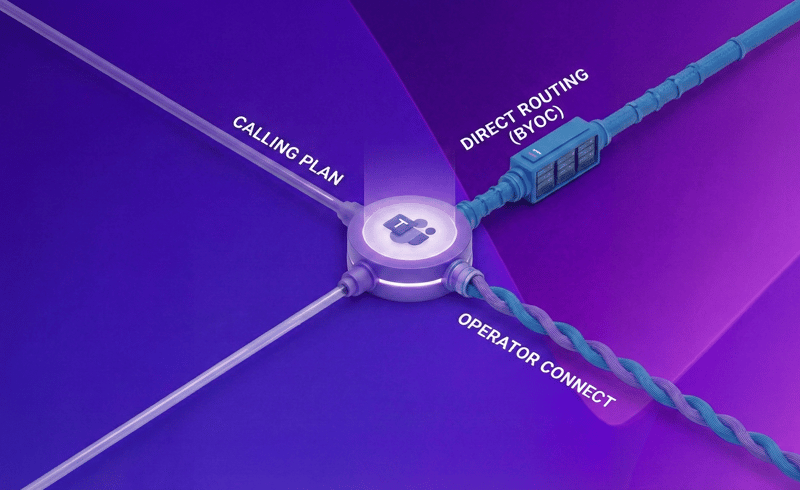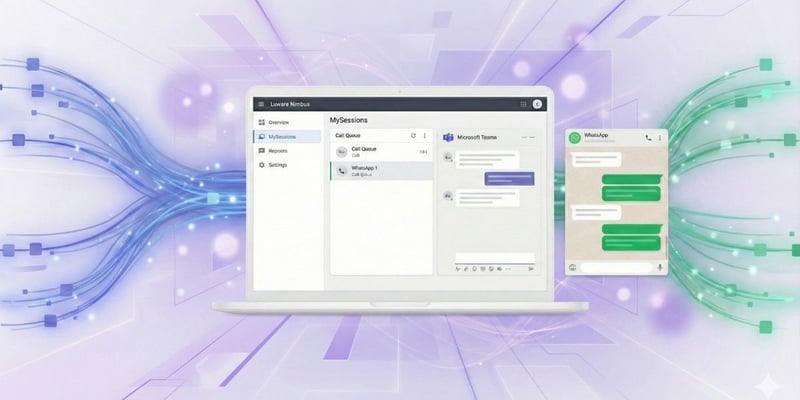During an economic downturn, when every penny counts, customer service becomes a business cornerstone. It’s how you retain existing customers and build a strong customer base. Smart businesses know happy customers stay, even when money’s tight. Build trust, provide real value, and show genuine care. And ensure every support interaction is smooth.
Why customer service during a recession is critical
Recessions and economic downturns change customer behavior. This shift significantly impacts customer service. When customers feel uncertain, customer loyalty becomes invaluable. They choose trusted services and brands. If your company doesn’t have their trust due to past experiences, you risk losing them.
The importance of customer retention
According to Forrester, even small dips in customer experience scores correlate with revenue losses. Focusing on existing customers is key. Retaining existing customers through good customer service is more affordable than acquiring new ones. Acquiring a new customer costs five times more than keeping an existing one. With strained budgets, customer acquisition during a downturn is especially challenging. Focus on retaining existing customers. Provide exceptional customer care, personalized service, and consistent value.
Prioritizing top-tier customer care builds company resilience and fosters long-term loyalty. This is powerfully illustrated by findings within The Loyalty Effect, a framework developed by Bain & Company, most notably by Frederick Reichheld. As research associated with this work aptly demonstrated, even a 5% increase in customer retention can boost profits by a significant 95%.
This highlights the critical role customer satisfaction plays in navigating challenging economic climates. By focusing on customer needs and providing outstanding support, businesses not only retain valuable customers but also position themselves for sustained success by leveraging the substantial economic benefits of loyalty.
Building trust with your customer service during a recession
Financial downturns erode customer trust. Your company can combat this with honest, helpful content and customer support tailored to customer needs. This is how you increase customer retention.
Maintaining customer trust is especially critical during economic challenges, as customers become more sensitive to value and transparency. As Forrester notes in their blog post, 'What Happens To Trust In Times Of Economic Volatility,' periods of economic uncertainty heighten consumer anxiety and demand for trustworthy interactions.
Boosting company morale
Economic downturns affect consumer spending and company morale. Prioritizing customer service empowers your team.
Giving them the tools and training to handle challenging times improves efficiency. This is especially true for personalized customer service, aided by tools like Luware Nimbus.
When employees feel they can make a difference, morale improves, even during a downturn. Happy agents lead to happy customers and improve customer experiences.
How tech can elevate customer service during a recession
Recessions often necessitate budget cuts. However, technology improvements should not be the first sacrifice. The right technology can boost customer service efficiency and improve departmental operations.
As we learned during the pandemic, cloud-based UC platforms like Microsoft Teams enabled businesses to maintain continuity, enhance employee flexibility, and deliver focused customer service. Early adopters, witnessed firsthand how cloud solutions like Luware Nimbus facilitated seamless customer interactions, even in remote work environments. By empowering employees to work flexibly, these technologies not only maintained customer satisfaction but also improved overall business operations.
Efficiency and cost savings through AI augmentation
While automation and AI free up human agents for complex queries, the real value lies in how it augments their abilities. By providing AI-powered support during interactions, agents can increase first-call resolution rates and deliver a significantly better customer experience. Imagine AI providing real-time information or suggesting solutions during a call, empowering the agent to resolve issues quickly and accurately. This approach avoids the pitfalls of impersonal automation, ensuring customers feel supported and valued.
While Gartner predicts $80 billion in contact center agent labor cost savings by 2026 through automated conversational AI, the focus should be on how AI enhances human interaction, leading to both efficiency and superior customer satisfaction.
Meeting changing customer needs with new technology
During financial turmoil, customer needs can change drastically. Businesses should actively collect customer feedback, to ensure they are keeping customers happy, especially in times of supply chain shortages.
Customer support must adapt quickly to these evolving needs. Integrated cloud platforms allow support teams to be more versatile and responsive. Enterprises can analyze all customer interactions, identify specific needs, and deploy the most suitable team to respond promptly and effectively.
Rethinking customer service metrics
During economic downturns, typical customer service metrics—resolution time, CSAT scores, and first contact resolution—become critically important. Moreover, customer retention is paramount; happy customers are invaluable in challenging economic times. The differentiator lies in how effective customer service can be a lifeline, turning around struggling businesses.
By prioritizing exceptional service, companies can not only retain customers but also leverage it as a strategic advantage to navigate and even thrive during economic downturns.
Proactive communication
Shift to proactive communication. Don't wait for customer issues; anticipate them. Deliver personalized messages and address common client issues or inquiries with targeted information. Examples include email newsletters with helpful tips, or online guides for troubleshooting.
The goal is to empower customers through self-service. This reduces wait times and staff stress, ultimately increasing customer satisfaction.
Prioritizing First Contact Resolution (FCR)
Addressing concerns on the first contact has a greater impact during a recession. Every support interaction takes time, energy, and resources. First contact resolution (FCR) saves resources. It also minimizes disruptions from callbacks regarding unresolved problems. Augmentation will be very powerful here, as the agent gets help from AI, which will drive up FCR. By focusing on resolving issues efficiently in the initial interaction, businesses can optimize their resources and improve customer satisfaction, which is particularly crucial in a challenging economic climate.
|
Customer Service Metric
|
Why It Matters
|
|
First Contact Resolution (FCR)
|
Reduces costs and boosts customer satisfaction.
|
|
Customer Retention Rate
|
Shows customer loyalty and is less expensive than acquisition.
|
|
Customer Satisfaction (CSAT) Score
|
Indicates overall customer happiness.
|
Embracing the omnichannel approach
Customers interact with businesses across a variety of channels—email, chat, social media, phone, and beyond the traditional contact center. To deliver a truly seamless customer experience, a comprehensive omnichannel approach is crucial. Customers value personalized communication that builds upon previous interactions, regardless of the channel used.
However, a significant blind spot often still exists: the numerous customer conversations happening outside these formal channels, such as direct calls to branch offices or established contacts within the company. Recognizing and integrating these interactions is a key differentiator. To deliver a truly seamless customer experience that encompasses all touchpoints, a comprehensive strategy is crucial.
Customers value personalized communication that builds upon previous interactions, regardless of the channel used or the person they reach. Therefore, businesses must ensure consistent messaging and, critically, maintain the context of customer interactions across every single interaction point.
Achieving this holistic understanding and unified customer experience is made easy with Luware Nimbus. Our single platform provides a complete view of all customer interactions, inside and outside the contact center, ensuring everyone in your organization can maintain context and foster stronger loyalty by working from the same, easy-to-use system and leveraging the full scope of customer relationships.
Conclusion
Customer service during a recession isn’t just about survival. It’s an opportunity to build trust, customer loyalty, and lasting customer relationships. This creates immense value.
Companies that provide exceptional customer service during a recession often outperform rivals when the economy recovers. Consistently building brand loyalty and customer faith across all departments is key. Company success shouldn't rest solely on one division.
Instead of drastic budget cuts, think about innovative technology use paired with positive customer interactions. To stay competitive, businesses must focus on fast response times, personalized interactions, and leveraging AI-powered tools to analyze customer conversations and deploy the right resources. By prioritizing customer experience and embracing technology, businesses can navigate challenging times and emerge stronger.
Customer-driven decision-making across all departments ensures the best value in all market situations, especially during recessions or market panics.








